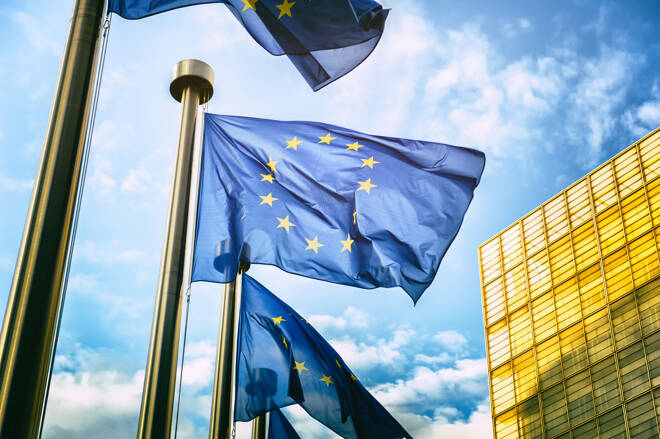Advertisement
Advertisement
Any Bullish View Connected To An EU Ban On Russian Energy Looks Misplaced
By:
There had been fears of bullish effects on the oil price connected to an EU ban of Russian energy, with the US championing the idea, but the EU appears less committed to it
Key Highlights
- There had been fears of bullish effects on the oil price connected to an EU ban of Russian energy.
- This ban is favoured by the US.
- EU comments on the subject appear less favourable to the idea.
As has been proven most notably in recent years with Iran’s ability to continue to export vast quantities of its crude oil and gas to several of the world’s biggest buyers of the products, despite wide-ranging sanctions against it, the old trading adage of ‘where there’s a will, there’s a way around any rules’ remains in place. The US’s ‘envisaged’ ban of Russian energy exports to the European Union (EU) ‘at some point’ fits perfectly into this mould, judging from violently contradictory comments from both sides recently.
On the one hand, just before the weekend, Daleep Singh, deputy White House national security adviser, spoke for the administration of President Joe Biden in saying that: “I have confidence that Europe is getting the message and they are determined to close off this last source of export revenue [Russian oil and gas exports].” He added: “It’s important that they do this as soon as they can.”
EU Seems More Concerned With Being Able To Pay For Continued Russia Energy Supplies
On the other hand, the EU’s executive branch – the European Commission (EC) – appeared much less concerned with halting oil and gas imports from Russia and much more concerned with working out how best to continue to pay for them so that Russia would not stop them due to lack of payment. This follows the 31 March decree signed by Russian President Vladimir Putin requiring EU buyers to pay in roubles for Russian gas via a new currency conversion mechanism or risk having supplies suspended.
In a directive circulated to all EU member states on 21 April, the EC said that: “It appears possible [to pay for Russian gas after the adoption of the new decree without being in conflict with EU law].” The EC added: “EU companies can ask their Russian counterparts to fulfil their contractual obligations in the same manner as before the adoption of the decree, i.e. by depositing the due amount in euros or dollars.”
The EC also stated that existing EU sanctions against Russia do not prohibit engagement with Gazprom or Gazprombank, beyond the refinancing prohibitions relating to the bank. “Likewise, they do not prohibit opening an account with Gazprombank, [although] such engagement or account should not lead to the violation of other prohibitions.”
Over and above the lack of ideological cohesion evident between the US on the EU on properly banning Russia oil and gas imports, the effects of the expected shortfall in April of oil supplies from Russia have not been as dramatic as had been predicted by many.
‘Expected’ Russian Supply Squeeze In April Was Not As Dramatic As Many Thought
It had been thought by several analysts – but multiply contradicted by FX Empire – that as takers of Russian spot cargoes became scarce and Russian refineries reduced or halted activity due to lack of buyers a significant supply squeeze would be felt this month. This, it was posited, would affect between 2.5-3.0 million barrels per day of oil products, a substantial amount of which is usually destined for EU states.
About the Author
Simon Watkinsauthor
Simon Watkins is a former senior FX trader and salesman, financial journalist, and best-selling author. He was Head of Forex Institutional Sales and Trading for Credit Lyonnais, and later Director of Forex at Bank of Montreal. He was then Head of Weekly Publications and Chief Writer for Business Monitor International, Head of Fuel Oil Products for Platts, and Global Managing Editor of Research for Renaissance Capital in Moscow.
Advertisement
